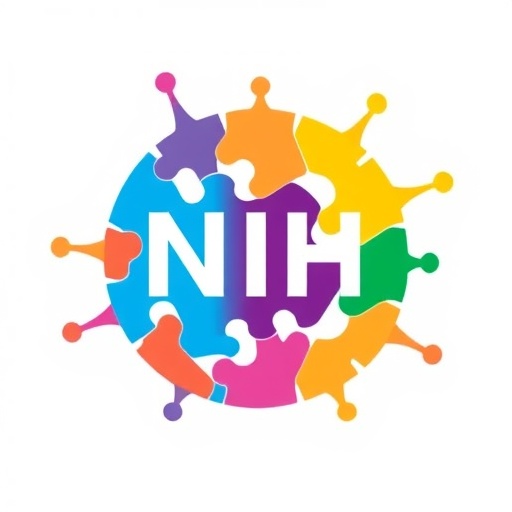In a groundbreaking advancement for autism research, investigators at Weill Cornell Medicine and Cornell University’s Ithaca campus have secured a substantial $5.1 million, three-year grant from the National Institutes of Health’s Autism Data Science Initiative (ADSI). This funding supports the launch of the Autism Replication, Validation, and Reproducibility Center (AR²), a pioneering effort designed to enhance the reliability, accuracy, and public trust of autism research data and analyses.
The AR² Center emerges as a critical scientific quality control hub, tasked with overseeing the reproducibility and validation of studies within the wider ADSI framework. Spearheading this initiative is Dr. Judy Zhong, chief of the Division of Biostatistics at Weill Cornell Medicine’s Department of Population Health Sciences, and director of the Data Coordinating Center. Dr. Zhong’s leadership underscores a rigorous commitment to ensuring that autism research findings are not only replicable but robust across diverse datasets and methodologies.
AR² is among the thirteen projects backed by the expansive $50 million ADSI effort, which intensely investigates the complex biological underpinnings of autism, encompassing genetic contributions, environmental interactions, and multifactorial etiologies. The interdisciplinary leadership team includes Dr. Rainu Kaushal, senior associate dean of health data science and chair of the Department of Population Health Sciences, alongside Dr. Conor Liston, a professor with dual appointments in neuroscience and psychiatry. This collaboration leverages rich data resources, such as Medicaid claims and the INSIGHT Clinical Research Network, which Dr. Kaushal directs, complemented by PCORnet repositories, enabling comprehensive cross-validation of ADSI findings.
Fundamental to AR²’s approach is a meticulous three-step process designed to rigorously scrutinize data and analyses. The first phase involves replication, where AR² scientists replicate the computational analyses to affirm initial results generated by ADSI investigators. This step is pivotal in verifying that the original conclusions hold when analytical procedures are independently rerun, ensuring the accuracy of statistical inference and model execution.
Following replication, the second step emphasizes validation, where models are assess for their applicability across heterogeneous patient subsets or alternative diagnostic criteria. This ensures that ADSI-derived models maintain predictive integrity and scientific validity across varied clinical contexts, preventing overfitting to specific populations or datasets and enhancing generalizability.
The final step addresses reproducibility—a cornerstone of scientific integrity—through comprehensive documentation and transparency practices. By providing thorough analytic workflows, datasets, and metadata standards, AR² empowers external researchers to independently reproduce findings, thus cementing confidence in discovered associations and fostering a collaborative scientific environment.
To anchor its research in real-world relevance, AR² incorporates a community advisory board composed of policymakers, researchers, and parents of children with autism. This board convenes biannually, facilitating two-way communication that aligns scientific objectives with the lived experiences and concerns of the autism community. Such engagement ensures that research outputs translate meaningfully into patient-centered outcomes and policymaking.
This innovative center capitalizes on the sophisticated computational infrastructure and expertise of the Cornell Center for Social Sciences (CCSS) Data and Reproduction Archive, a nationally recognized repository based at the Ithaca campus. The CCSS provides indispensable support in replicating ADSI projects, enforcing data sharing protocols, shaping standardized best practices, and hosting technical workshops to elevate analytic competencies across ADSI teams.
Dr. Peter Enns, director of CCSS and co-investigator on the AR² project, emphasizes the importance of independent evaluation in the pursuit of reproducible research. He highlights the mutual collaboration between AR² and ADSI teams as a model for achieving reliable, transparent science—an essential foundation for trust in biomedical research, especially within complex fields like autism.
A critical operational component of AR² is the involvement of research associates and students who work directly with data and code replication. Led by Dr. Florio Arguillas, these trainees gain hands-on experience in examining datasets, debugging analysis pipelines, and confirming result fidelity. This educational dimension not only accelerates AR²’s mission but also cultivates a new generation of researchers adept in replicable, transparent data science methodologies.
In addition to its computational prowess, AR² benefits from the Data Coordinating Center at Weill Cornell Medicine, renowned for its leadership in real-world evidence studies and clinical trials. This resource provides robust infrastructure for integrating disparate data sources and ensuring analytic rigor across institutional and disciplinary boundaries.
Looking beyond the immediate project timeline, Dr. Zhong and Dr. Enns envision AR² as a foundational effort with broader implications for scientific reproducibility across diverse research arenas. The initiative demonstrates a successful cross-campus collaboration that unites expertise in biostatistics, neuroscience, health policy, and computational social science—setting a precedent for how integrated teams can systematically enhance trustworthiness in scientific discovery.
The AR² Center’s mission is both timely and critical. In an era where the reproducibility crisis challenges many scientific disciplines, their commitment to rigorous validation, transparent communication, and robust data science techniques offers a model for elevating standards within autism research and beyond. As Dr. Zhong aptly remarks, establishing rigorous, trustworthy, and transparent research processes is imperative now more than ever to foster public confidence and translate scientific advances into meaningful progress for patients and families affected by autism spectrum disorder.
Subject of Research: Autism, Data Science, Scientific Reproducibility, Validation and Replication of Biomedical Research
Article Title: Advancing Trust in Autism Science: Launch of the AR² Center for Replication and Validation
News Publication Date: Not specified
Web References:
Weill Cornell Medicine Division of Biostatistics
Department of Population Health Sciences
Data Coordinating Center
INSIGHT Clinical Research Network
PCORnet
Cornell Center for Social Sciences
Department of Government
Cornell Jeb E. Brooks School of Public Policy
References: Information derived entirely from provided source text
Keywords: Autism, Reproducibility, Data Science, Validation, Replication, Neurodevelopmental Disorders, Biomedical Research, Scientific Integrity
Tags: ADSI autism data science projectAutism Replication Validation Reproducibility Centerautism research funding initiativesbiostatistics in autism researchenhancing autism research accuracygenetic and environmental factors in autismimproving reliability in autism studiesinterdisciplinary leadership in autism researchNIH grant for autism researchpublic trust in scientific researchreproducibility and validation in researchWeill Cornell Medicine autism initiative





